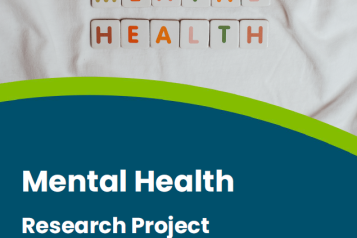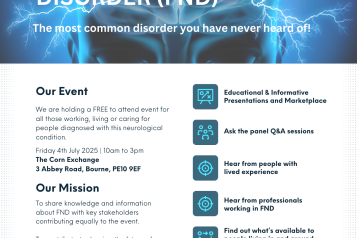What does good mental health care look like?
Mental health is consistently one of the top issues people tell their local Healthwatch about. To mark Mental Health Awareness Week and following the launch of our multi-year mental health project last year, we look at the treatment and care you should expect to receive from mental health services.
Guidance from the National Institute for Health and Care Excellence (NICE) explains how professionals should improve the experience of people using NHS mental health services, from when you are first referred to a service, to what should happen during your assessment and how you should be involved in your treatment. Here we look at some of the things the guidance says you should expect from good mental health care.
What should I expect when I’m referred to a mental health service?
If your GP thinks mental health services can help you, they will write to them to ask for an appointment.
The mental health service should offer you an appointment within three weeks of your GP writing to them.
Your appointment letter should covers things like who you will be seeing, how to get to the appointment, what questions you will be asked during your assessment, and if you need any extra support (for example, if you have any access or communication needs, or if you would like to bring a family member, carer or advocate with you).
Questions to ask during your assessment
After you’ve been referred to a mental health service, you’ll be asked to attend an assessment. You might feel nervous about this but it’s important to think about some of the questions you can ask to make sure you get the most out of your appointment. Here are some examples:
- Why am I being offered an assessment?
- Will you tell anyone about my mental health problem?
- Who can provide my treatment and care?
- Are there any support organisations in my local area?
- Have you got any information for my family or carer?
- How can I manage my own condition?
- Who can I contact if I need help quickly between appointments (in a crisis)?
What should I expect from mental health professionals?
The health and social care professionals you come into contact with should be easy to identify, friendly and welcoming. They should understand that you may feel nervous, and do their best to make your feel comfortable.
How should I be involved in my treatment?
It’s important that doctors, nurses and other health and social care professionals work with you to come to joint decisions about your care.
They should explain things clearly and give you the information you need to come to a decision together. If possible, they should also help you manage your own condition, for example by giving you resources that can help or telling you where you can find further support.
What should happen after I’ve been assessed?
Your mental health team should explain your treatment and also work with you to develop a care plan, including:
- Activities, such as education, work, volunteering, caring for family members or leisure activities
- What you can do to keep well
- How to cope with and reduce any risks to yourself or others
- Who to contact in a crisis.
What should I do in a crisis?
There should be a local 24-hour helpline you can call in a crisis. Your GP or mental health team should be able to give you this number.
If the crisis team thinks you need an assessment or treatment from mental health services, you should be seen within four hours. The assessment can take place at home or, if this isn’t possible, you should be asked where you would like the assessment to take place. You should also be asked if you would prefer to see a male or female professional for your assessment.
The crisis team should be available 24 hours a day, 7 days a week, and should support you to stay at home rather than going into hospital if possible
Can my family, carer or advocate be involved in my treatment?
Professionals should make sure you are able to make decisions about your own treatment – this is called ‘capacity’. This can change over time if your mental health condition is severe, and your doctor might ask you if you want to make an advance statement or advance decision about your future care.
You should also be asked by mental health professionals if you would like a family member, carer or trained advocate involved in your care and, if you agree, what information you’d like to share with them.
Want to find out more about what to expect?
Read the full guidance on mental health support from NICE.


